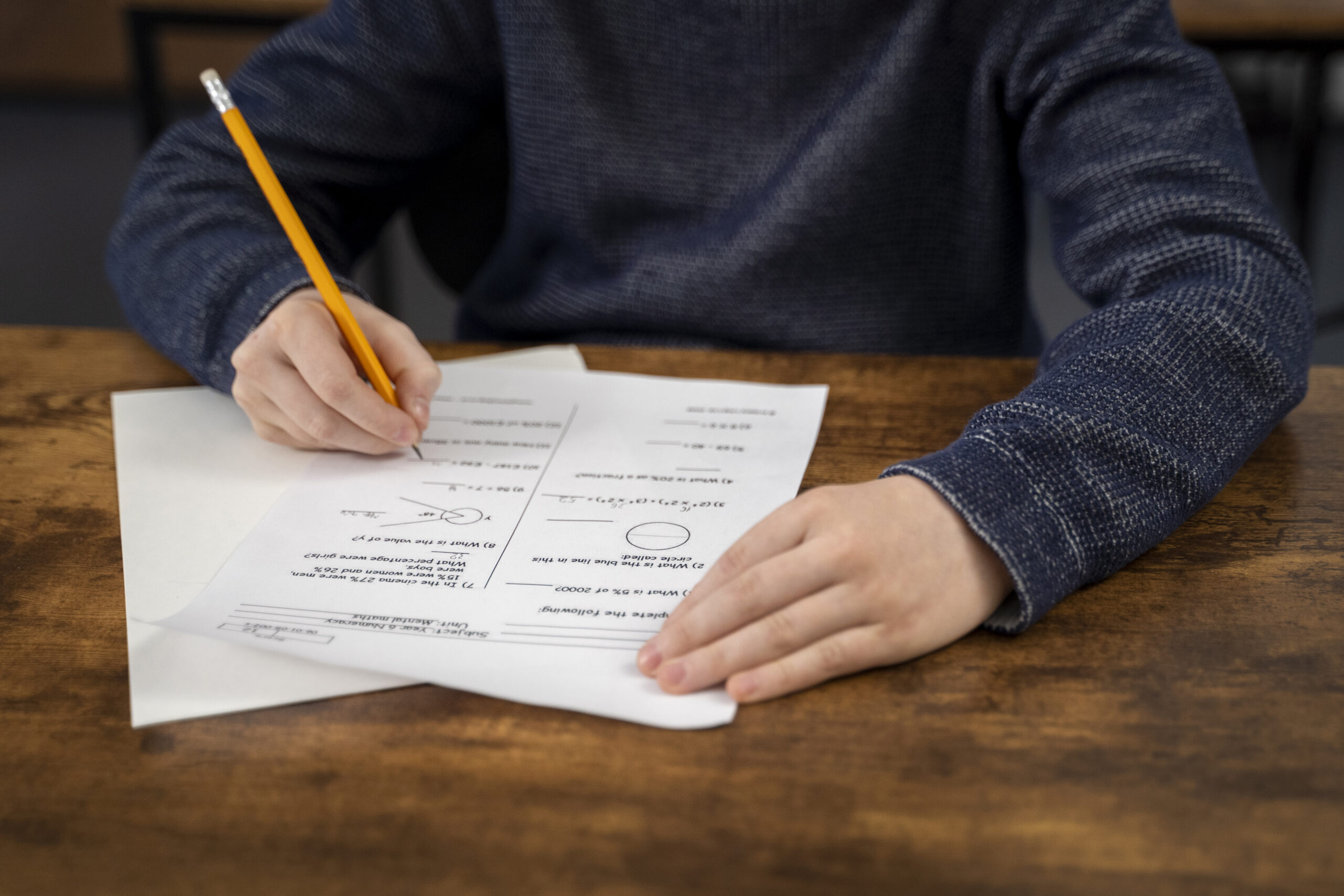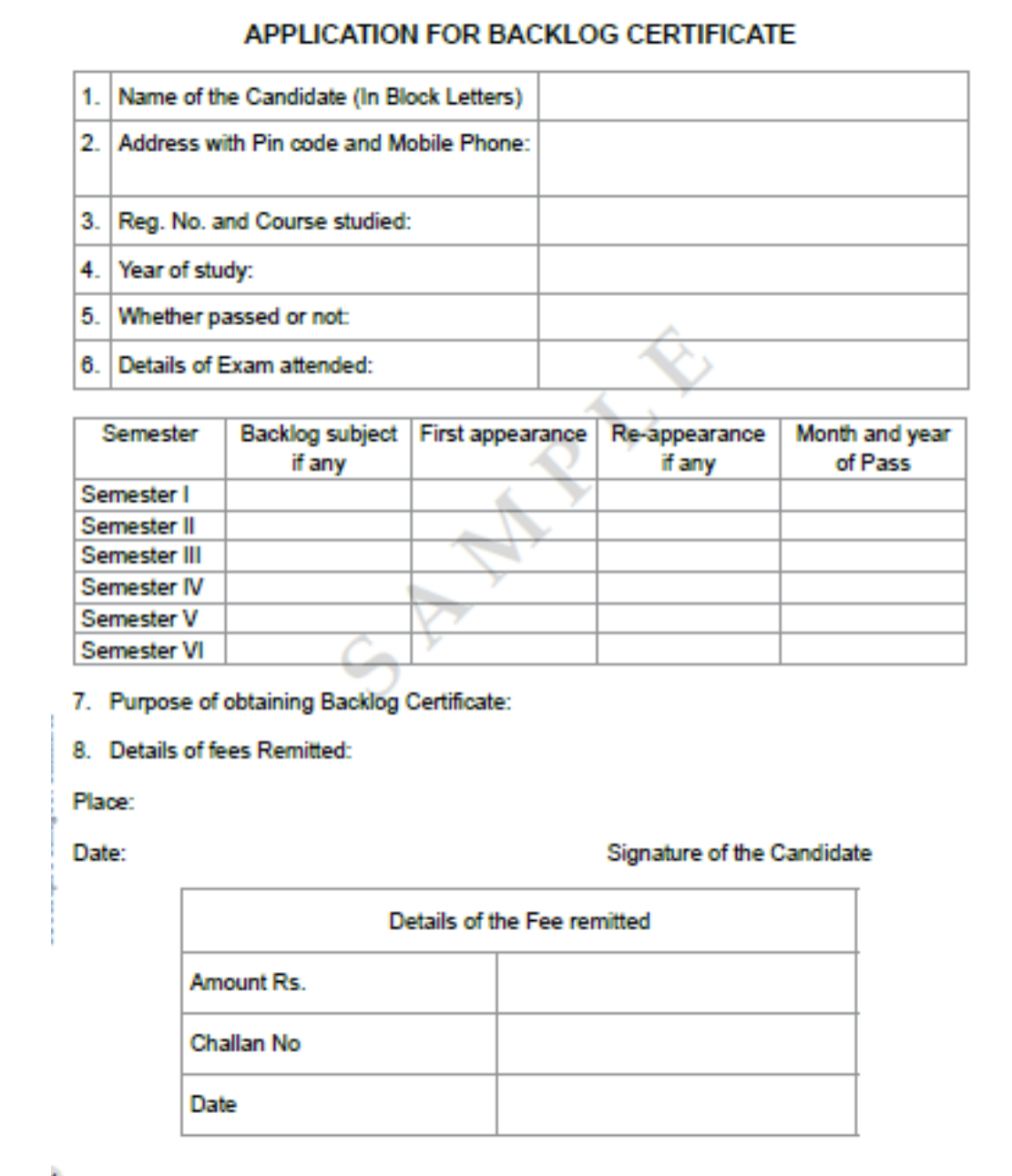

Applying abroad is a tedious task to some. Why? Because of the amount of research you have to put into it. And There is so much paperwork to do. You are in luck because we have made one step of the process easy for you: the backlog certificate.

A backlog certificate must be submitted with other application-supporting materials such as academic transcripts, LORs, SOPs, test results, your CV, etc.
Here is why you need it for studying abroad.
The next question is, ‘how to get a backlog certificate?’
Simply put, you must submit a backlog certificate application to the university you graduated from.
To minimize any delays, make sure you provide accurate information while completing the backlog certificate application.
The majority of Indian universities give students backlog certificates and are aware of this criterion for admission to foreign universities. To get a backlog certificate or even a no backlog certificate from the university, you need to submit a formal application.

In rare cases, the college might not know about this process. Hence, you may encounter difficulties in receiving your certificates.
In that case, contact the university where you are applying and ask them to send a letter requesting a backlog/no backlog certificate from your university. This issue generally occurs when there are zero backlog certificates.
If you are still in doubt, get in touch with peers and alumni and understand how they received their certificate. Try reaching out to them through offline mediums. If that doesn’t work, you can always go online. It’s simpler.
Log into SelectRight . The platform can connect you with mentors who can provide valuable guidance. These mentors are either alumni or current students of the university you want to attend.

Trash advice VS SelectRight?
You can find the backlog certificate application on your college’s website. Fill it out and send it to the appropriate authorities.
Here is an example of a backlog application format.
Application for Backlog Certificate
The Principal/ Dean
Name of University
Address of the University
Subject: Application for Backlog Certificate
Respected Sir/ Madam,
I am _____ (Name) , s/o or d/o of _____ (Father’s Name), Roll No. ______, student of _____ (course name with batch) at your university. This is an application to request you to issue my backlog certificate as I require it for applying to a master’s degree. The details of my backlogs are mentioned in the table below:
( In this section, you have to fill in details with respect to the program for which the Backlog Summary Certificate is requested. Mention all the courses which were not cleared in a single attempt .)
| Semester | Expected Year of Passing | Year of Passing | Number of Backlogs | Number of Attempts | Subject Reappears |
| Semester I | |||||
| Semester II | |||||
| Semester III | |||||
| Semester IV | |||||
| Semester V | |||||
| Semester VI |
Please issue my backlog certificate at the earliest possible. Thank you for your time and consideration.
A No Backlog Application follows a similar format, but you don’t have to mention the details of your backlogs or add ‘nil’ in the places.
The Principal/ Dean
Name of University
Address of the University
Subject: Application for No Backlog Certificate
Respected Sir/ Madam,
I am _____ (Name) , s/o or d/o of _____ (Father’s Name), Roll No. ______, student of _____ (course name with batch) at your university. This is an application to request you to issue my zero backlog certificate as I require it for applying to a master’s degree. I have cleared my bachelor’s degree with zero backlogs in any semester and therefore ask you to issue a certificate verifying the same.
Please issue my backlog certificate at the earliest possible. Thank you for your time and consideration.
The backlog certificate format is straightforward and mainly contains information about the student, the institution, the course, and specifics about the courses and the total amount of backlogs.
Name of the University
This is to certify that _____ (Name) , s/o or d/o of _____ (Father’s Name), Roll No. ______, is a student of _____ (course name with batch) at _____ (University Name).
The student has successfully completed his/ her Bachelor of _____ . The backlog summary record is as follows:
| Semester | Expected Year of Passing | Year of Passing | Number of Backlogs | Number of Attempts | Subject Reappears |
| Semester I | |||||
| Semester II | |||||
| Semester III | |||||
| Semester IV | |||||
| Semester V | |||||
| Semester VI |
This certificate has been issued on the request of the student and the information contained herein is verified.
(Signature of the Principal/ Dean)
Name of the University
This is to certify that _____ (Name) , s/o or d/o of _____ (Father’s Name), Roll No. ______, is a student of _____ (course name with batch) at _____ (University Name). The student has successfully completed his/ her Bachelor of _____ with no backlogs in 1st to 6th semesters.
This certificate has been issued on the request of the student and the information contained herein is verified.
(Signature of the Principal/ Dean)
You will also have to sign an acknowledgement which will look like this.

Answer: Not all colleges require a certificate of backlog. The most prestigious colleges typically seek out applicants with a strong academic background.
Since your academic transcripts will show that you have no backlogs, the majority of universities do not require a no backlog certificate. The no backlog certificate is typically common in universities in Australia and New Zealand.
Answer: Some colleges will not accept students with backlogs. However, students with backlogs may be chosen by universities that give standardized test scores a lot of weight. Your test results must be higher than the requirements of the university for that.
Make sure you do extensive research on colleges that accept students with backlogs. Universities may set a limit on the total number of backlogs when requesting a backlog certificate. When applying, you must pay close attention to these points.
Focus on eligibility tests, extracurricular activities, and social work, to make up for your backlogs.
If you have backlogs due to Covid-19, get in touch with your admissions office. Many colleges have waived off the no-backlogs rule for the pandemic batches.
Answer: Take the help of online platforms. For example, SelectRight uses 6 million data points across 10,000+ STEM, CS & MBA programs to give you transparent and unbiased recommendations.

All you have to do is create an account and add your requirements.
Answer: Although the majority of prestigious colleges in Germany favor applicants without backlogs, many of them accept them.
Most German colleges that accept backlogs will accept up to five backlogs. However, applications with more than five backlogs are only approved at the admissions offices’ discretion. Also, the majority of German universities only accept students with a maximum of 10 backlogs.
Answer: The best thing about most UK institutions is that students can try their luck even if they have 15 unfinished classes.
For this, they must have a strong GRE score, an IELTS score of at least 6.0 and a good academic profile.
Note – Even if your GRE or IELTS scores are great, getting into the top universities with backlogs is hard.
Answer: No. Backlogs do not directly affect your chances of getting a student visa. Student visa approval mainly depends on getting accepted by a university.
Since chances of getting accepted come down because of backlogs, it indirectly affects student visa approval.
Answer: For information beyond this article, we recommend you to create an account on SelectRight.

If you are unsure about the credibility of SelectRight, check out the testimonials and read what our previous clients are saying about SelectRight.
The platform can help you answer any questions that you might have about your application including backlog certificates.
Now that you know about backlog certificates, the backlog certificate format, the application format, whether you need it or not, start your journey.
And if you need any further help, reach out to SelectRight for guidance.